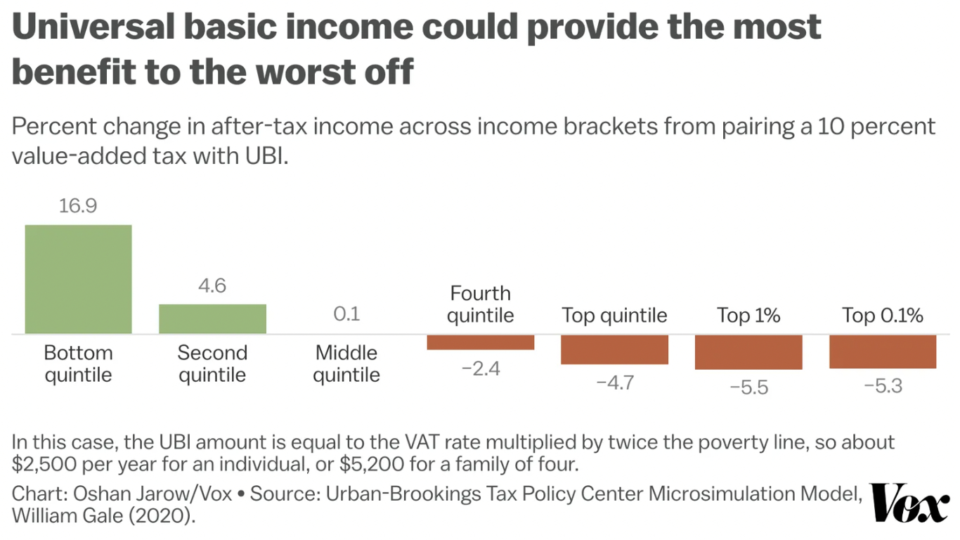Giving Compass' Take:
- Oshan Jarow explains how universal basic income helps those most in need most, making it a strong anti-poverty policy.
- What role can you play in supporting universal basic income efforts?
- Read about racial and economic equity in anti-poverty policies for kids.
What is Giving Compass?
We connect donors to learning resources and ways to support community-led solutions. Learn more about us.
Some people see UBI as a “capitalist road to communism” or a world free of work. Others see everything from a means of unleashing the population’s creative potential to a policy that would undermine human agency and erode “psychological capital.” Some see it as a way to shore up the welfare state. Others, a way to bulldoze it.
In part, that’s because unless you pin down the details, basic income is too vague to mean anything politically concrete. Like the Rorschach inkblot, you can interpret and design UBI in an endless variety of ways. A program that provides $250 per month is a different ballgame than one providing $1,200 per month. The same goes for one that replaces all other welfare, like food aid (sometimes referred to as a “pure UBI,” which would actually leave the most disadvantaged worse off, and is a bad idea), compared with one that complements existing programs.
Ultimately, the effects of any income guarantee hinge on the details. How much does it pay? Who gets it? How’s it financed? How does it relate to the rest of the welfare state? But most of the real proposals that have made their way through the policy world share a noteworthy trait: When the dust settles, they just wouldn’t be that radical, in either direction.
Generally, most people at the bottom of the income ladder would be better off, those in the middle would break even as they pay about as much in higher taxes as they’d receive from the basic income, and those at the top would be a little worse off. Society would neither ascend into utopian communism nor collapse into bleak idleness. There would just be less poverty and higher taxes.
I see this as good news. If basic income won’t be the silver bullet that changes — or destroys — society, it becomes something far more politically tractable: a moderately effective policy, albeit one with trade-offs, that is well worth considering.

Read the full article about universal basic income by Oshan Jarow at Vox.